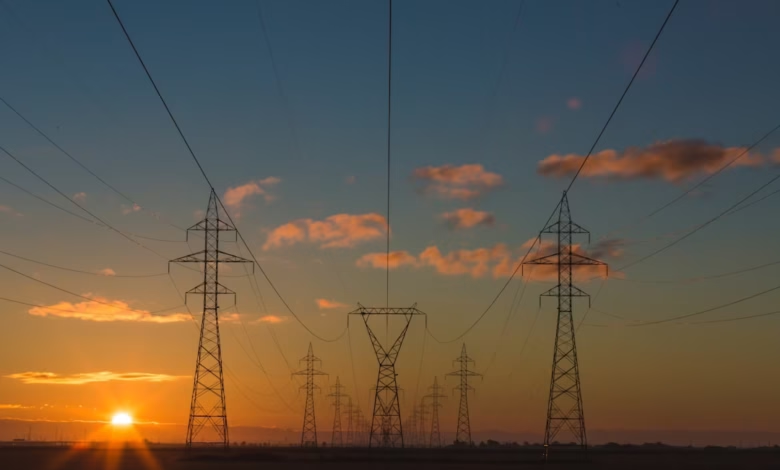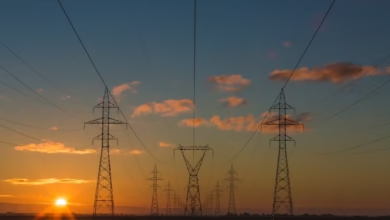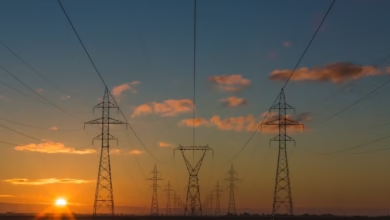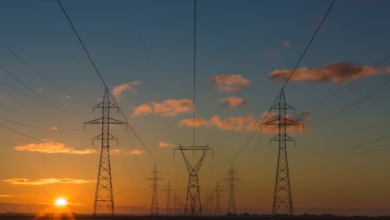Navigating the Future of Energy in Transportation: Exploring Electric Vehicles, Biofuels, and Renewable Energy Solutions

As the world grapples with the pressing challenges of climate change and dwindling fossil fuel reserves, the evolution of energy in transportation has become a focal point of global energy trends. This article delves into the dynamic landscape of fuel sources for vehicles, including electric vehicles (EVs) and biofuels, while examining the critical role of renewable energy in shaping the future of transportation. With energy efficiency and security at the forefront of energy policy discussions, the transition to greener alternatives is not just a matter of innovation but a necessity for sustainable development.
We'll explore how cutting-edge energy innovations, such as hydrogen energy and smart grids, are paving the way for a more resilient transportation sector. Additionally, we will take a closer look at the potential of bioenergy and offshore energy as viable alternatives, alongside traditional fossil fuels and nuclear energy, to create a comprehensive energy ecosystem. Join us as we navigate the complex interplay of energy storage, climate change, and energy investments that are defining the future of energy transportation.
- 1. The Future of Energy in Transportation: Exploring Renewable Energy and Electric Vehicles
- 2. Biofuels and Beyond: A Comprehensive Look at Alternative Fuel Sources in the Energy Transition
- 3. Energy Efficiency and Security: The Role of Fossil Fuels, Nuclear Energy, and Smart Grids in Modern Transportation
1. The Future of Energy in Transportation: Exploring Renewable Energy and Electric Vehicles
The transportation sector is undergoing a significant transformation as we move towards a more sustainable future. The future of energy in transportation is increasingly focused on renewable energy sources and electric vehicles (EVs), driven by the urgent need to reduce greenhouse gas emissions and combat climate change. As fossil fuels become less favorable due to their environmental impact, the shift towards green energy is more critical than ever.
Electric vehicles are at the forefront of this energy transition. With advancements in energy storage technologies, such as improved battery systems, EVs are becoming more efficient and accessible. The integration of smart grids enhances the management of electricity supply and demand, facilitating the use of renewable energy sources like solar power and wind energy for charging these vehicles. This not only increases energy efficiency but also promotes energy security by reducing dependence on energy imports and fossil fuels.
In addition to electric vehicles, bioenergy presents a viable alternative fuel source for transportation. Technologies that convert organic materials into biofuels are gaining traction, contributing to energy markets while simultaneously addressing energy economics. This diversification of fuel sources is essential in achieving a balanced energy portfolio that includes thermal energy, hydropower, and nuclear energy—each playing a role in the overall strategy for energy innovation.
Moreover, the global energy trends indicate a strong push towards carbon capture technologies and offshore energy development, which are vital for mitigating the impacts of climate change. Energy investments in these areas are crucial for advancing energy R&D and fostering distributed energy systems that can adapt to local needs.
As energy policies evolve to support these developments, it is clear that the future of energy in transportation will be characterized by a blend of renewable energy solutions and cutting-edge technologies. By embracing these innovations, we can create a resilient energy transportation framework that not only meets the demands of today but also ensures a sustainable future for generations to come.
2. Biofuels and Beyond: A Comprehensive Look at Alternative Fuel Sources in the Energy Transition
As the world grapples with climate change and the urgent need for a sustainable energy transition, biofuels have emerged as a significant player in the quest for alternative fuel sources. Biofuels, derived from organic materials, offer a renewable energy solution that can help reduce reliance on fossil fuels and enhance energy security. They play a critical role in the global energy landscape, providing a bridge towards greener energy markets while also addressing the challenges posed by traditional energy sources.
One of the key advantages of biofuels is their potential to utilize existing infrastructure for energy transportation. This adaptability helps ease the transition from fossil fuels to renewable energy, as biofuels can often be blended with conventional fuels without requiring extensive modifications to vehicles or distribution systems. This characteristic positions biofuels as a vital component in energy policy frameworks aimed at promoting energy efficiency and reducing carbon emissions.
The development of advanced biofuels, such as cellulosic ethanol and biodiesel from waste feedstocks, highlights the innovations occurring within the bioenergy sector. These innovations are crucial in enhancing the sustainability of biofuels, as they minimize competition with food resources and reduce the carbon footprint associated with cultivation. Moreover, integrating biofuels with carbon capture technologies can further mitigate greenhouse gas emissions, reinforcing the role of biofuels in the energy transition.
Beyond biofuels, other alternative fuel sources are gaining traction in the energy markets. Hydrogen energy, for instance, has garnered significant attention due to its versatility and potential for energy storage. As energy innovations continue to evolve, hydrogen can be produced through renewable methods, such as electrolysis powered by solar or wind energy. This not only supports the growth of green energy but also addresses the challenges of energy storage and distribution.
Furthermore, advancements in thermal energy and offshore energy projects illustrate the diverse pathways available in the energy transition. Hydropower remains a stalwart in renewable energy generation, while emerging technologies in wind energy and solar power are reshaping energy economics and investment strategies worldwide. The integration of smart grids, which enhance the efficiency and reliability of energy distribution, plays a pivotal role in optimizing the use of these diverse energy sources.
As nations navigate their energy imports and exports in an increasingly interconnected world, the importance of distributed energy solutions becomes evident. These solutions not only support local energy needs but also contribute to global energy trends that prioritize sustainability and resilience. By fostering energy R&D and promoting investments in alternative fuels, countries can advance their energy policies while mitigating the impacts of climate change.
In summary, the exploration of biofuels and other alternative fuel sources is essential in the broader context of the energy transition. As we move away from fossil fuels and invest in renewable energy technologies, the collaboration between various energy sources will be critical in achieving a sustainable and secure energy future.
3. Energy Efficiency and Security: The Role of Fossil Fuels, Nuclear Energy, and Smart Grids in Modern Transportation
In the evolving landscape of transportation, energy efficiency and security play pivotal roles in shaping the future of how we travel. The reliance on fossil fuels remains significant, as they have historically powered a vast majority of vehicles worldwide. However, with the increasing urgency to address climate change and the shift towards energy transition, the focus has expanded to include renewable energy sources and innovative technologies.
Fossil fuels, including oil and natural gas, continue to dominate energy markets due to their established infrastructure and energy density. They provide a reliable source of thermal energy for conventional vehicles but contribute significantly to carbon emissions. To mitigate these impacts, energy innovations such as carbon capture technology are being explored. These advancements aim to reduce the carbon footprint of fossil fuel usage, enhancing energy efficiency while maintaining energy security.
Nuclear energy presents another viable option in the quest for a cleaner transportation sector. As a low-carbon energy source, nuclear power can provide substantial energy storage capabilities, supporting the electrification of transport systems. With the rise of electric vehicles (EVs), nuclear energy can contribute to a stable and reliable electricity supply, ensuring that energy imports are minimized and energy exports can be optimized.
The integration of smart grids further enhances energy efficiency and security. Smart grids enable better management of energy distribution, allowing for real-time monitoring and optimization of energy flows. This technology supports distributed energy systems, facilitating the incorporation of renewable sources like solar power and wind energy into the energy mix. As energy markets evolve, smart grids will play a crucial role in balancing demand and supply, optimizing energy usage across transportation networks.
In addition to these technologies, bioenergy and hydropower also contribute to the diversification of energy sources in transportation. By utilizing organic materials and harnessing the power of water, these renewable options can significantly reduce dependency on fossil fuels and enhance climate resilience.
Ultimately, the interplay between fossil fuels, nuclear energy, and renewable sources will dictate the future of energy in transportation. As global energy trends shift towards sustainable practices and energy policies increasingly favor green energy solutions, investment in energy R&D will be essential for fostering innovations that ensure energy security while addressing climate challenges. The path forward lies in a balanced approach that embraces energy efficiency, security, and the pursuit of a cleaner, more sustainable transportation system.
In conclusion, the landscape of energy in transportation is undergoing a remarkable transformation driven by the need for sustainability and resilience in the face of climate change. As we explore renewable energy sources such as solar power, wind energy, and hydropower, it becomes evident that the future of transportation will lean heavily on electric vehicles and biofuels. These innovations not only contribute to energy efficiency but also enhance energy security by diversifying our energy markets and reducing dependence on fossil fuels.
Moreover, the integration of smart grids and energy storage solutions will play a critical role in optimizing the use of renewable energy, ensuring that energy transitions are both efficient and reliable. With the rise of hydrogen energy and thermal energy advancements, we are witnessing a shift towards greener alternatives that align with global energy trends and energy policy initiatives aimed at reducing carbon footprints.
As energy investments continue to grow in areas like bioenergy and offshore energy, it is clear that the energy transportation sector is on the brink of significant evolution. Embracing energy innovations and fostering energy R&D will be essential in navigating the complexities of energy economics and ensuring a sustainable future. By prioritizing these strategies, we can not only address our energy imports and exports but also contribute positively to the global effort against climate change. The journey towards a sustainable transportation system is not just a necessity; it is an opportunity to reshape our approach to energy and build a more resilient future.





